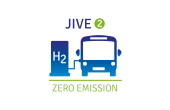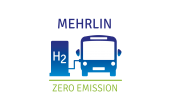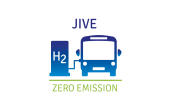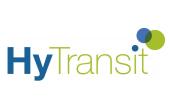The JIVE (Joint Initiative for hydrogen Vehicles across Europe) project seeks to deploy 131 new zero emission fuel cell buses and associated refuelling infrastructure across four countries. JIVE will run for seven and a half years from January 2017 and is co-funded by a 32 million euro grant from the Clean Hydrogen Partnership (former Fuel Cells and Hydrogen Joint Undertaking) under the European Union Horizon 2020 framework programme for research and innovation. The project consortium comprises 18 partners from six countries.
This is the first out of two projects. The JIVE2 project started in January 2018. Combined, the JIVE projects will deploy nearly 300 fuel cell buses in 16 cities across Europe by the early 2020s – the largest deployment in Europe to date.
The leaflet summarising the JIVE/JIVE2/MEHRLIN projects is available here.
Objectives/targets:
The overall objective of the JIVE initiatives are to advance the commercialisation of fuel cell buses through large-scale deployment of vehicles and infrastructure so that by the end of the project, fuel cell buses are commercially viable for bus operators to include in their fleets without subsidy, and that local and national governments feel empowered to regulate for zero emission propulsion for their public transport systems.
JIVE will introduce new fleets of fuel cell buses into urban and regional bus operations at an unprecedented scale. This will be made possible by multiple cities and regions collaborating in joint procurement processes, allowing large orders to be placed with single bus suppliers. The procurement activities are organised into three clusters and by clustering geographically, it is possible to provide common specifications for the buses, which is essential to unlock the economies of scale.
General objectives of the JIVE and JIVE 2 projects:
- Achieve a maximum price €625k-€650k for a standard fuel cell bus thanks to economies of scale – or lower
- Foster joint procurement processes, encourage manufacturers to develop and refine their fuel cell bus offers
- Validate large scale fleets in operation and encourage further uptake, showcasing that fuel cell buses represent a viable alternative for public transport authorities, offering the same operational flexibility as diesel buses but without the harmful tailpipe emissions
- Deploy largest hydrogen refuelling stations in Europe and operate them at near 100% reliability
- Demonstrate routes to achieve low cost renewable hydrogen
- Share data and best practice to support the adoption of the technology and provide evidence of the suitability of fuel cell buses for wider roll-out
Specific objectives of JIVE:
- Achieve 30% cost reduction versus state of the art
- Operate 50% of the vehicles for at least 36 months
- Deploy the largest capacity hydrogen refuelling stations (HRS) in Europe and achieve near 100% reliability
- Demonstrate technological readiness of FC buses and HRS and encourage further uptake
Public Deliverables:
JIVE Best Practice and Commercialisation Report 2 (Jan 2020)
JIVE best practice and commercialisation report 1 (August 2019)
JIVE & MEHRLIN - Performance Assesment Handbook (Feb 2018)
Lessons learnt from fuel cell bus joint procurement (June 2018)
More documents on fuel cell buses are available on the "publications" section

 In operation
In operation  Planned
Planned




